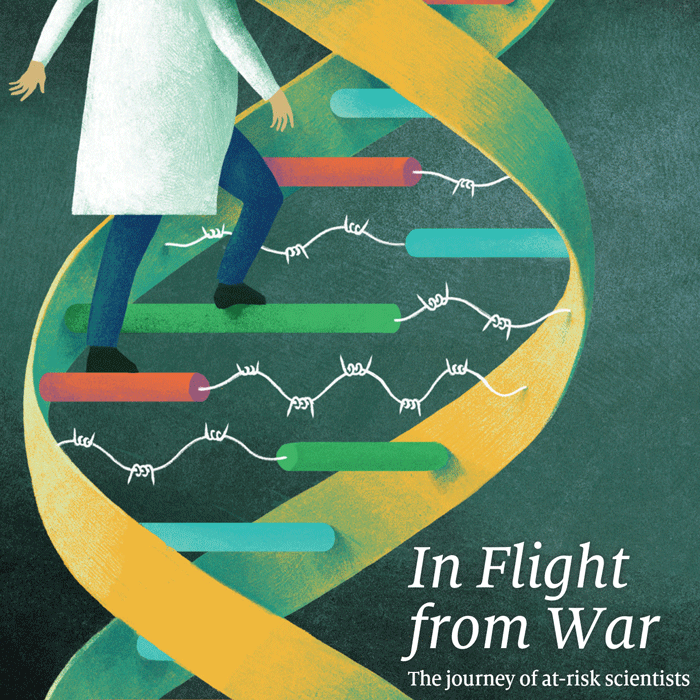Building on a long-standing collaboration to support capacity-building of scientists from developing countries, UNESCO-TWAS has partnered with COMSTECH, the Ministerial Standing Committee on Scientific and Technological Cooperation of the Organization of Islamic Cooperation, for TWAS-COMSTECH Science in Exile Fellowship Programme for displaced and refugee scholars and scientists.
The programme targets displaced and refugee students and scientists, who have not yet found a safe and long-term host country, and supports them in pursuing doctoral and postdoctoral studies in Pakistan, at institutions members of the COMSTECH Consortium of Excellence.
The programme, which is financially supported by the Swedish International Development Cooperation Agency (Sida), was launched in December 2021 under the Science in Exile initiative. Carried out in collaboration the International Science Council and the InterAcademy Partnership, Science in Exile brings together at-risk, displaced and refugee scientists along with like-minded organizations who work together to strengthen systems that support, protect and integrate such scientists.
The programme’s call for applications closed in February 2021, with more than 230 applications received, 80 per cent from Afghan nationals and 13 per cent from women. The majority of applicants were either still living in Afghanistan, or had recently fled to Pakistan and other countries in the region.
A Selection Committee made up of experts from TWAS and COMSTECH, as well as members of the Science in Exile Steering Committee, met in March 2022 and selected 10 PhD and seven postdoctoral candidates, some of whom started their fellowship in July 2022. Sixty-five per cent are from Afghanistan, and four are women.
“TWAS has been working with displaced scientists since 2017, and, thanks to the precious collaboration with COMSTECH, COMSTECH and Sida funds, it is now able to directly support several of them to gain education and experience at top science institutions in Pakistan,” highlighted TWAS Executive Director Romain Murenzi, himself a former refugee from Rwanda, who grew up in neighbouring Burundi. “Today, it is more urgent than ever to come together to intensify international collaboration and help build a better future for our displaced colleagues. This is why, in 2022, we launched the Science in Exile Declaration titled "Supporting at-risk, displaced and refugee scientists: A call to action". Both individuals and organizations can sign the Declaration, and join TWAS in advocating for the support and protection of refugee scientists, so that they can continue to make their rightful contributions to global science,” he added.
Muhammad Iqbal Choudhary, COMSTECH Coordinator General, expressed satisfaction on the prompt implementation of the programme, and committed to further strengthen "the excellent initiative" with TWAS and other partners. He said that refugee scientists and science students are the real assets of any country, and their productive engagement in scientific research in leading institutions of host countries not only helps them to continue their career, complete their studies and build linkages with host institutions, but also to eventually contribute in rebuilding of their countries on their return.
TWAS-COMSTECH Science in Exile Fellowship Programme for displaced and refugee scholars and scientists was designed to provide support to the most vulnerable scholars, helping them stay up to date in their field, maintain meaningful careers, and be in a position to help rebuild their countries, once conditions allow. Until then, these professionals can be valuable assets for the countries in which they arrive.
Countless scientists are fleeing their country because of war, violence, persecution and sociopolitical instability, as well as climate change. Even when they find refuge in a new country, the insecurity often continues, due to their precarious status.
Overall, and despite the COVID-19 pandemic, the number of people forcibly displaced worldwide is still increasing, with 89.3 million at the end of 2021, according to the Office of the United Nations High Commissioner for Refugees. Afghanistan and the Syrian Arab Republic are still among the top five countries of origin of refugees, while Pakistan is one of the top five countries hosting the largest number of displaced people.
For more information on the fellowship programme and the Science in Exile initiative, please visit https://scienceinexile.org.

